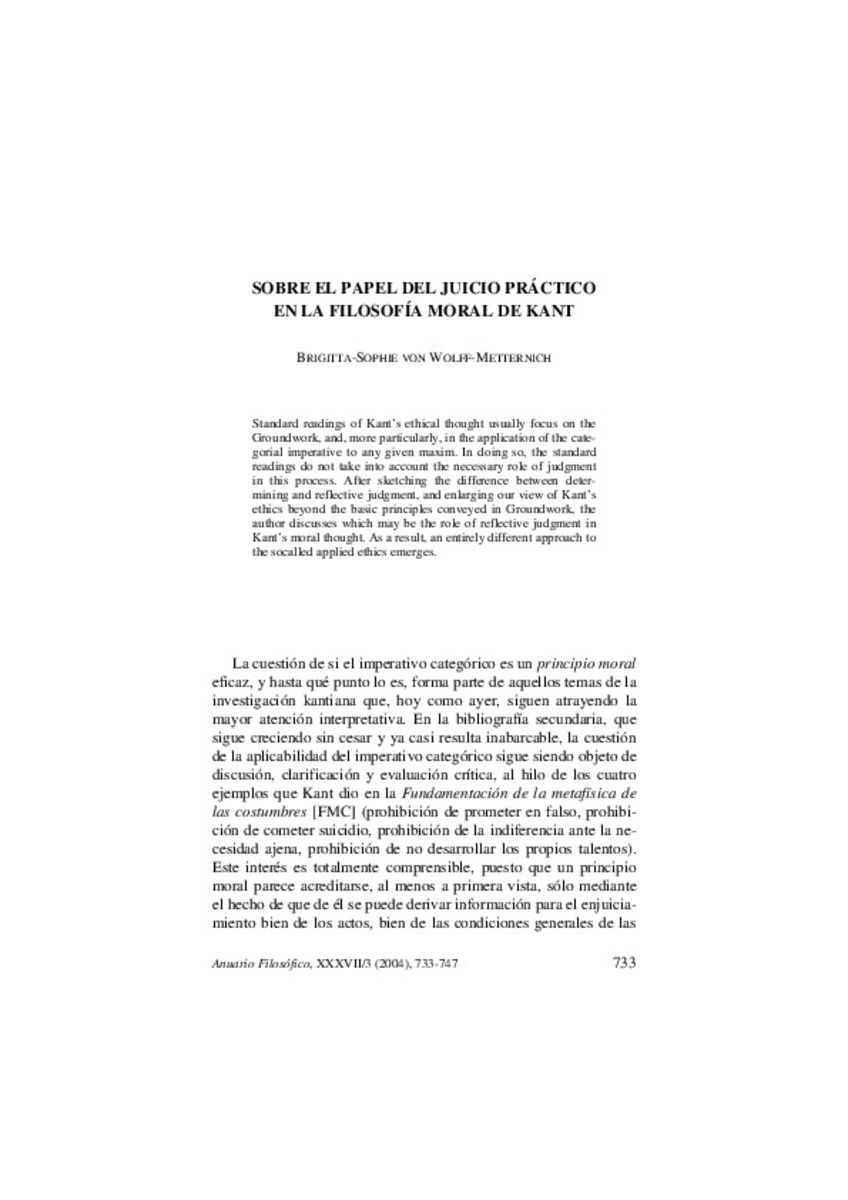Full metadata record
| DC Field | Value | Language |
|---|---|---|
| dc.creator | Wolff-Metternich, B.S. (Brigitta Sophie) von | |
| dc.date.accessioned | 2009-10-28T11:25:18Z | - |
| dc.date.available | 2009-10-28T11:25:18Z | - |
| dc.date.issued | 2004 | - |
| dc.identifier.citation | Anuario Filosófico, 2004 (37), 733 - 747 | es_ES |
| dc.identifier.uri | https://hdl.handle.net/10171/4581 | - |
| dc.description.abstract | Standard readings of Kant’s ethical thought usually focus on the Groundwork, and, more particularly, in the application of the categorial imperative to any given maxim. In doing so, the standard readings do not take into account the necessary role of judgment in this process. After sketching the difference between determining and reflective judgment, and enlarging our view of Kant’s ethics beyond the basic principles conveyed in Groundwork, the author discusses which may be the role of reflective judgment in Kant’s moral thought. As a result, an entirely different approach to the socalled applied ethics emerges. | es_ES |
| dc.language.iso | spa | es_ES |
| dc.rights | info:eu-repo/semantics/openAccess | es_ES |
| dc.subject | juicio | es_ES |
| dc.subject | Kant, Immanuel | es_ES |
| dc.subject | ética | es_ES |
| dc.title | Sobre el papel del juicio práctico en la filosofía moral de Kant | es_ES |
| dc.type | info:eu-repo/semantics/article | es_ES |
| dc.identifier.doi | 10.15581/009.37.29360 | es_ES |
Files in This Item:
Statistics and impact
Items in Dadun are protected by copyright, with all rights reserved, unless otherwise indicated.






